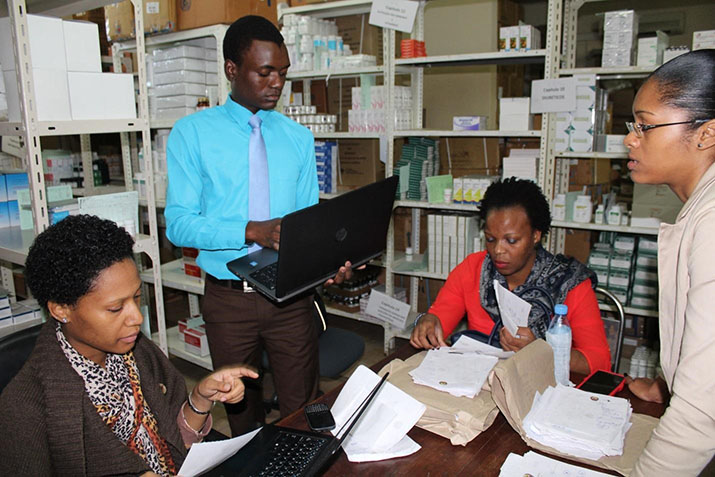How Digital Health Technology Can Help Reach UHC Goals
How Digital Health Technology Can Help Reach UHC Goals

On May 21, during the 71st World Health Assembly, member states adopted a new digital health resolution. It urges member states to better utilize digital technologies as a means of promoting equitable, affordable universal health coverage (UHC), including reaching vulnerable populations. The resolution also calls on members to analyze the implications of digital health to achieve health related sustainable development goals.
MSH has implemented a number of USAID-funded, multi-year pharmaceutical systems strengthening programs to institutionalize more than 35 tailor-made digital health technologies that promote access to medicines and pharmaceutical services, both of which are critical components of UHC. MSH staff have summarized these efforts in an article published by Digital Health journal this month.
The article includes five case studies:
- A dashboard module to help reduce contraceptives stock-outs in Bangladesh
An electronic dispensing tool for antiretroviral therapy in Namibia
- A digital medicines registration system in Mozambique
Data warehousing technology in Uganda
- A medicines management logistics system in Mali
Digital health interventions like these can help gather valuable data to guide future systems strengthening investments and activities. The 2017 World Bank/ WHO report on monitoring progress toward UHC points out that there is a lack of data on tracking progress on “access to essential medicines” as part of the Sustainable Development Goal (SDG) 3.8 on health. The UHC service coverage index described in the Lancet Global Health last month also excluded this indicator due to limited data availability.
“Digital health tools have an important benefit in that demonstrating progress and global health investment value requires sound data. Digital health technologies are a means to that end,” says lead author Niranjan Konduri, principal technical advisor with MSH.
The paper gives ideas and concrete next steps on what the global health community can do with information technology to get the data that are needed to monitor progress in improving access to affordable, available medicines, and achieving the SDGs.